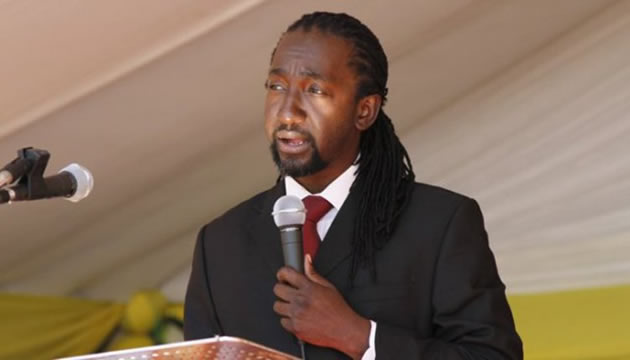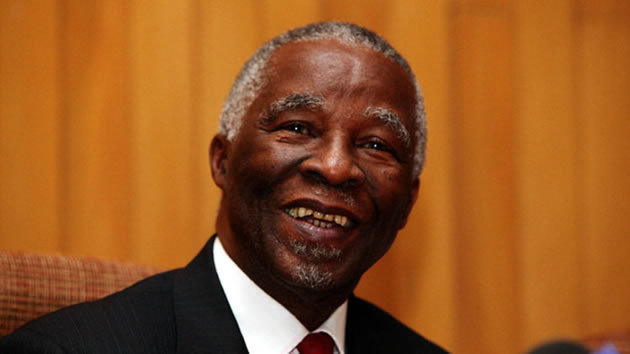Indigenisation is not for Minister Zhuwao only

Tanzikwa Guranungo Correspondent
Implementation of the Indigenisation and Economic Empowerment (IEE) Act does not rest with the Minister of Youth, Indigenisation and Economic Empowerment Hon Patrick Zhuwao only but all line ministries in Government. Minister Zhuwao is there to administer the Act.
Recent media coverage in and outside the country has accused Minister Zhuwao of acting unilaterally to get foreign-owned companies to comply with the law. We have also noted that most ministers are not seen nor heard on the implementation of the Act.
We expect all ministers to tackle the indigenisation agenda in the spirit of oneness as directed by Cabinet. We have ministries like Industry and Commerce, Mines and Mining Development, Finance, Information Communication and Technology, Energy and Power Development and Economic Planning and Investment Promotion but we don’t hear them urging foreign-owned companies that fall under their portfolios to comply. What Zimbabweans will only hear are contradictions on implemention of the Act.
According to Hon Zhuwao, Cabinet also directed that all line ministries must make available to the National Indigenisation and Economic Empowerment Board (NIEEB) a full and comprehensive list of all companies that are licensed to operate within their sectors within a week from March 22, 2016 for the purposes of verifying their indigenous status.
“I believe that these measures directed by Cabinet shall remedy the longstanding disregard for the Indigenisation and Economic Empowerment Act [Chapter 14:33] by non-compliant businesses. It is only such contemptuous businesses that must face the full force of the law,” said Zhuwao.
For starters, on Tuesday March 22, 2016 Cabinet unanimously passed a resolution directing that from April 1, 2016 all line ministries proceed to issue orders to the licensing authority to cancel licences of non-compliant business within their respective sectors of the economy.
This welcome decision by Cabinet will ensure that the laws of Zimbabwe, specifically the Indigenisation and Economic Empowerment Act [Chapter 14:33], are respected and enforced.
On March 23, 2016 Minister Zhuwao issued a Press statement to the effect that failure to adhere to the laws of our land must attract immediate consequences that must be severe and dire enough to ensure that the law is respected and adhered to.
In addition, Cabinet has directed that all line ministers invoke Section 5 of the Indigenisation and Economic Empowerment Act [Chapter 14:33] Act against all non-compliant businesses in their sectors.
This decision also follows a very clear pronouncement by His Excellency President R.G. Mugabe in his closing speech at ZANU-PF’s 15th Annual National People’s Conference in Victoria Falls on December 12, 2015, where he was forced to throw down the gauntlet against the brazen disregard of our laws and declared that:
“There are companies in this country that still refuse to accept our empowerment policy within the mining sector. But certainly come January 2016 that stubbornness and resistance we say should end in 2015. 2016 we will not accept a company which refuses and rejects our policy of indigenisation and empowerment in the manner we inscribed it.
“Well, laws must be adhered to. We must never breed lawlessness as a nation. The failure to adhere to the laws of our land must attract immediate consequences that must be severe and dire enough to ensure that the law is respected and adhered to” he said.
It is reassuring therefore to law-abiding Zimbabweans whose aspiration is that they must own their economy through indigenisation and economic empowerment, that Cabinet has boldly spoken against such lawlessness that has continued to deprive the indigenous majority ownership of their economy.
Furthermore, Minister Zhuwao said laws must be enforced to realise the people’s aspirations. “As Cabinet ministers we swore an oath to uphold the law and are duty bound to ensure that the law is adhered to and enforced,” he added.
Legality of enforcing non-compliance
In addition, Zhuwao said invoking of Section 5 of the Act was purely a technical process which shall come into effect by pure operation of the law. This process will involve the following:
1. The line minister shall issue an order to a licensing authority to cancel licences of non-compliant business.
2. The line minister to notify non-compliant businesses in writing of the intention to cancel licences;
3. Non-compliant businesses may show just cause why the licence should not be cancelled;
4. Line minister will then direct the non-compliant businesses to become compliant;
5. Failure of which the line minister will proceed to notifying third parties likely to be affected by cancellation of the licences; and
6. Licensing authority shall, without notice, cancel licenses of businesses that remain non-compliant after 30 days of having been given the room to comply.
In addition, there is need to maybe to align the Indigenisation Act and the Banking Act so that the Finance Minister and his counterparts won’t contradict each other, leading to people blaming the Government for policy inconsistency.
If our Cabinet ministers contradict themselves, how do you expect a man in the street to judge our Cabinet and Government? What’s worse is that both ministers sit in the Cabinet and Politburo of the ruling Zanu-PF which is also in Government. We expect our Hon Ministers to respect Cabinet directives to avoid unnecessary contradictions which tarnish the image of the country.
The indigenisation policy, which gained traction following the promulgation of the Indigenisation and Economic Empowerment Act, was signed into law by President Robert Mugabe in 2008 after it was passed by Parliament.
The law gave Zimbabweans the right to take over and control foreign-owned companies in Zimbabwe. Specifically, over 50 percent of all the businesses in the country will be transferred into local African hands. The Act defines an indigenous Zimbabwean as “any person who before the 18th of April 1980 was disadvantaged by unfair discrimination on the grounds of his or her race, and any descendant of such person”.
We hope and trust all concerned ministers will adhere to the Cabinet directive for the good implementation of the Act as it will go a long way in empowering us as a country.
Tanzikwa Guranungo is the Public Relations Manager for the Zimbabwe Youth Council.









Comments